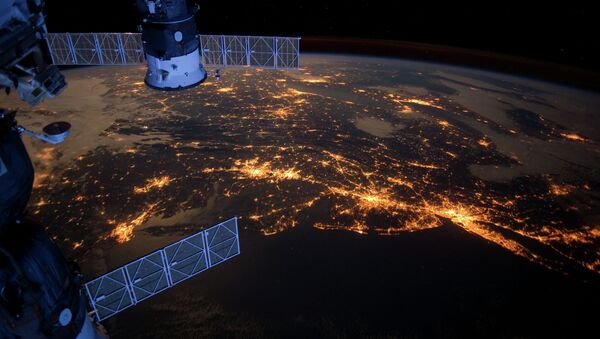One of the unique traits of the new space race is that it’s multipolar — the money and political will to get to space is coming from many places at once, including governments and private enterprise. This is not your parents' space race, dominated in the 1950s and 60s by monolithic organizations like NASA and the Soviet government.
But are accidents like the recent explosion of an unmanned Antares rocket on a mission to resupply the International Space Station a sign of the new space order? The launch, conducted by private company Orbital Sciences, failed spectacularly just after liftoff from the Virginia coast in October, when the rocket exploded on the launchpad. Would the disaster have happened if the launch had taken place under government control?
“At the beginning, private companies, they’re going to make mistakes and things will go wrong,” said the Canadian Broadcasting Corporation’s science expert, Bob McDonald. “The problem is they don’t have much margin for error. And so it’s sad that after 50 years in spaceflight, that rockets still blow up like this and it’s just hoping they’ll be able to recover from this tragedy.”
High-profile failures in the space industry are in the headlines everywhere you look. Virgin Galactic’s SpaceShipTwo commercial spacecraft broke up and crashed in the Mojave desert during a test flight on October 31, killing one test pilot and injuring another. Just last week, following a ten-year journey to comet 67P in the outer reaches of the solar system, the Philae lander, after touching down on the surface of a comet for the first time in history, promptly rolled into a shadow and drained all the juice in its battery.
Perhaps this climate of uncertainty is why the Russians may be pulling out from the ISS entirely. On November 17, Russia Today reported the Russian space agency, Roscosmos, is considering construction of its own high-altitude space station after its obligations to the ISS are complete. “There are rumours about Russia leaving the ISS project”, said Russian Deputy Prime Minister Dmitry Rogozin. “We will not, the program is set to run until 2020 and we will stick to our international obligations. As for prolonging it until 2024 — that’s what we’re really doubtful of.”
Despite the failures and prevarications, the desire to explore the boundless depths of space is still strong. The main problem: space travel is a risky business and always will be. “You have so much energy required to get out of the Earth’s gravity field, you’re always essentially sitting on a bomb,” says John Hansman, a professor of aeronautics and astronautics at MIT. “You’re basically trying to have the bomb go off in a controlled way.”





